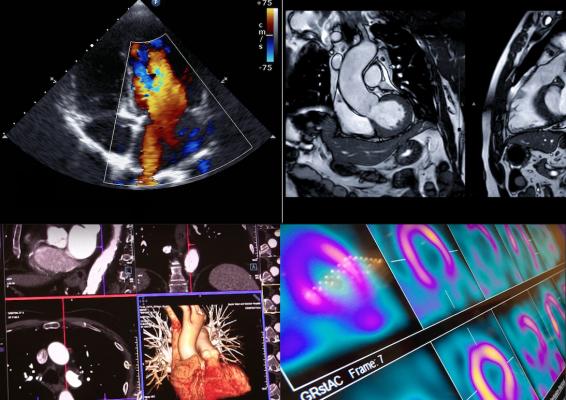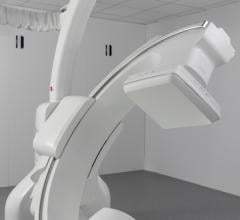
September 22, 2021 — Test selection should be a shared decision between patient and physician rather than directed by insurers’ test substitution policies, according to a statement published online in the Journal of the American College of Cardiology.[1] The statement summarizes the proceedings of a recent summit convened by the American Society of Nuclear Cardiology (ASNC), where six leading cardiovascular imaging organizations discussed challenges associated with test substitution.
The principles outlined in the statement were endorsed by the leadership of the American College of Cardiology Imaging Council, American Society of Echocardiography (ASE), ASNC, Society of Cardiovascular Computed Tomography (SCCT), Society for Cardiovascular Magnetic Resonance (SCMR), and the Society of Nuclear Medicine and Molecular Imaging (SNMMI).
Test substitution policies are defined as policies enacted by private insurers or their radiology benefits managers that require the substitution of one diagnostic test for another. These have become a troublesome trend in recent years, according to new statement.
The paper focuses on the potential impacts of test substitution on coronary artery disease assessment. The authors note that the few randomized trials comparing the various imaging modalities have generally described benefits and limitations with each modality and that guidelines and appropriate use criteria “include individualized risk assessment as a necessary prerequisite to deciding whether or not a test is needed, as well as test selection.”
“Cardiovascular test selection is highly nuanced and needs to reflect numerous variables, including individual patient factors, local expertise and access, and technology-related details,” said Sharmila Dorbala, M.D., MPH, MASNC, senior author of the statement and ASNC immediate past president. “Test substitution policies can lead to patients receiving the wrong test, unnecessary testing, and care delays. Insurers’ push to use a single first-line test in all patients with chest pain is not supported by evidence and may undermine a patient’s confidence in, and adherence to, their treatment plan.”
The authors call for more research on the impact of test substitution policies on cardiovascular outcomes, including the potential for subsequent additional testing and increased cost. They outline five consensus principles important for a “patient centric and personalized approach to chest pain imaging,” noting that “the key issue is the overall impact on health, taking into account patient preferences and the long-term cost-effectiveness of the strategy.”
The principles are as follows:
• Optimal patient care should be the priority for physicians and insurance providers.
Given equivalent diagnostic accuracy and appropriate use criteria, there is no clear justification for routinely and indiscriminately recommending one diagnostic strategy over another.
• Test substitution driven by short-term costs savings should not be endorsed.
• In alignment with the principles of patient-centered medicine, a personalized approach to testing based on clinical information is better than one test for all patients.
• Physicians are willing to accept guideline-directed management, relieving insurance providers of liability and reducing administrative burdens and cost.
“It is significant that representatives from all of the major cardiovascular imaging societies came together on this statement pointing out the problems with test substitution by insurance companies,” explained Randall C. Thompson, M.D., FASNC, the statement’s first author and ASNC’s current president. “While individual cardiologists may disagree on the optimal testing approach for an individual patient, there is strong consensus that these decisions are nuanced and should be made by expert physicians in the context of appropriate use and in collaboration with the patient – not by insurers’ algorithms. This statement points to the unmeasured harm that may be caused by overly assertive managed care and test substitution and calls for more research in this area.”
“A Policy Statement on Cardiovascular Test Substitution and Authorization: Principles of Patient-Centered Noninvasive Testing” (J Am Coll Cardiol 2021 Sep,78[13]:1385-9) echoes key points from ASNC’s 2011 position statement on the role of radiology benefits managers and private insurers in the physician-patient relationships. These documents underscore the ASNC’s long commitment to #PatientFirst clinical decision-making and test selection. Drs. Dorbala and Thompson are available for interviews.
Find more cardiac business stories


 February 13, 2026
February 13, 2026 









